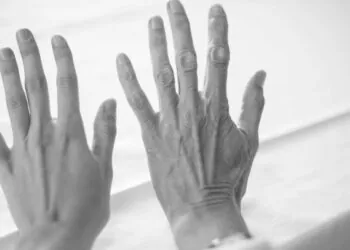Living with post-traumatic stress disorder (PTSD) can be challenging, but the sheer number of people doing so will surprise you. According to the National Center for PTSD, 6% of the US population struggles with the condition at some point. The symptoms may fade with time, and people do recover, but the pain cannot be undermined.
PTSD emerges after exposure to traumatic events, such as combat, accidents, physical or sexual assault, natural disasters, or sudden bereavement. People encountering this issue experience a range of scary symptoms. These include intrusive memories, avoidance, hyperarousal, and negative changes in mood and cognition.
While recovery takes time, the right strategies and support can help you regain control. You don’t need to depend on medication and therapy to do it, as there are simpler solutions that actually work.
Set Realistic Expectations
Healing from PTSD is a gradual process. Cleveland Clinic notes that 30% of people with PTSD eventually recover, and 40% get better with treatment. In some cases, mild to moderate symptoms persist, but numbers show that chances of regaining normalcy are bright. At the same time, you need to have realistic expectations.
Accept that recovery takes time, and you may experience both good and bad days. Symptoms often lessen gradually rather than disappearing overnight. Grief or painful memories may linger, but you can learn to manage them with support and coping skills. Complete erasure of symptoms isn’t guaranteed. It is best to aim for reduced symptom impact and increased confidence in handling triggers.
When setting expectations, reframe the meaning of progress. For someone dealing with PTSD, progress means fewer distressing symptoms and a greater ability to cope, not forgetting the traumatic event.
Identify and Manage Triggers
Triggers are reminders of trauma that spark distress for people dealing with the memories of traumatic events. Recognizing them is the key to regaining normalcy after the hard time is over. The last thing you want is painful memories to haunt you forever. Look for personal triggers, such as places, people, sounds, dates, or even certain thoughts or feelings.
Let us cite traffic accidents as an instance. According to Medical News Today, car accidents are a leading cause of PTSD. Sudden crashes, fear of death, loss of a loved one, and feeling helpless are some reasons leading to post-accident trauma. For a victim, getting behind the wheel or sitting in a car can be a trigger.
Coping strategies can be personal too, from practicing mindfulness to talking to a friend and seeking justice. According to the Piscitelli Law Firm, victims can claim justice and compensation under personal injury law. This requires proving that the accident was caused by the negligence of another driver.
Victims can check their options online and click the “Contact Us Now” button on a law firm website to connect with experts. Knowing that the responsible driver has to pay gives you peace of mind. Record your triggers and maintain a journal to spot patterns. Remind yourself they are memories, not current threats.
Build a Support System
When it comes to coping with PTSD, connection aids recovery. Remember that mental health struggles are daunting, and overcoming them without support is easier said than done. Build a support system at home, work, and everywhere else.

Start by surrounding yourself with trusted individuals, such as friends, family, or support groups that can offer comfort and understanding. Mental health professionals provide evidence-based therapies.
Peer networks also make a great support system. Joining shared-experience groups, such as PTSD support communities, can validate your experiences and provide coping strategies. Set boundaries when creating a clan. Choose supporters who respect your recovery journey—limit contact with individuals who invalidate, dismiss, or blame you.
Maintain a Routine
Routine provides structure and stability, and both go a long way to help people with PTSD regain control. A study published by the NIH highlights the importance of daily routines for mental well-being. Regular routines are associated inversely with PTSD, indicating that maintaining them can actually lower the stress levels of individuals.
Schedule daily activities and stick with them as predictable routines reduce anxiety and foster a sense of control. Your routine should be built around self-care, with regular sleep, healthy meals, exercise, and relaxation being top priorities. These basics will keep you in shape physically and have a positive impact on your coping abilities.
Your routine should also include activities that bring joy or purpose. For example, you can work on some hobbies and creative outlets during weekdays and pursue volunteering during weekends. These activities can lift mood and offer a distraction from distressing thoughts.
FAQs
What type of events can cause PTSD?
PTSD can result from different events. Serious accidents like car crashes and industrial accidents are a common cause. War veterans can experience PTSD, and so can people who witness natural disasters like earthquakes, floods, fires, and pandemics. Other events include assault, sudden loss or bereavement, ongoing neglect, and chronic exposure to violence.
Is PTSD brain damage reversible?
PTSD does not represent “brain damage” in the traditional sense. However, it can cause changes in brain function and structure, such as in areas regulating stress, fear, and memory. Many of these changes can be normalized with evidence-based therapies, healthy coping mechanisms, and medication.
Does complex PTSD ever heal?
Complex PTSD arises from prolonged trauma or severely painful events. Healing is possible, but may require long-term therapeutic engagement. Progress may take years and involve different treatment approaches. Ongoing support from peers, professionals, and familial networks is also vital.
Recovery from PTSD is a journey that requires patience, self-love, and a commitment to resilience. If you or someone you know struggles with PTSD, remember that regaining control is possible. There is hope, and reaching out is the first courageous step such people must take sooner rather than later.














Discussion about this post